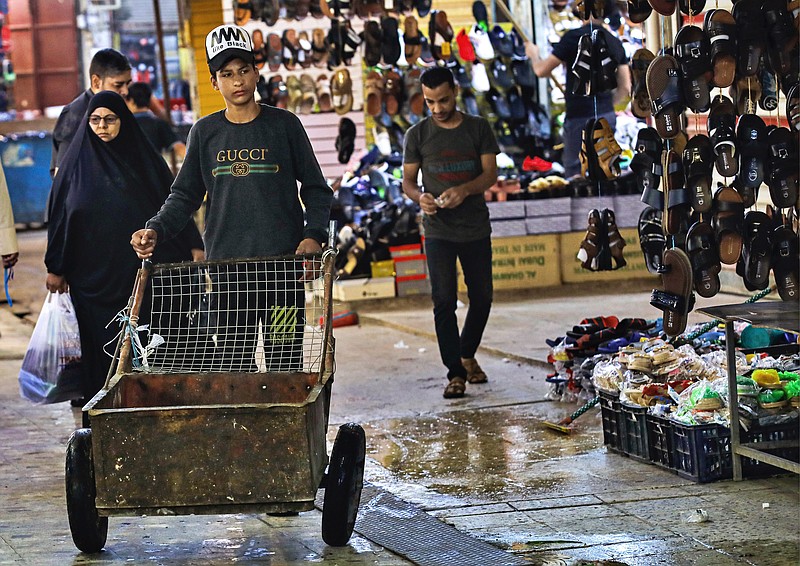BAGHDAD -- Iraq's Central Bank on Saturday announced it will devalue the nation's currency by more than 20% in response to a severe liquidity crisis brought on by low oil prices, a measure that has sparked public outrage as the government struggles to cover its expenses.
Riot police were dispatched to the central bank headquarters in central Baghdad in the event news of the devaluation sparked protests.
The news did draw the ire of public-sector workers. Many fear a weakened currency, as well as plans proposed in the budget to cut salaries and impose taxes, will amount to pay cuts.
The new rates represent a dramatic reduction from the official rate of 1,182 IQD, the Iraqi dinar, which is pegged to the U.S. dollar. It is the first reduction in exchange rates that the government has made in decades.
The Central Bank set the new rate at 1,450 IQD when selling to the Iraqi Finance Ministry. The dinar will be sold to the public at 1,470 IQD and to other banks at 1,460.
The devaluation raised the prospects of the dinar weakening further on the street. The rate had already risen to 1,400 IQD per U.S. dollar Saturday, up from 1,300 last week, at currency exchange agents.
"I stopped exchanging currency," said Abo Abed, who works at a currency exchange in the Karrada neighborhood of the capital. He turned away a customer with a $100 bill, saying he could sell only at the old rate of 1,300. "Who knows, tomorrow it could be 1,800 IQD."
Since an oil price crash this year, Iraq has been grappling with an unprecedented liquidity crisis. The crude-exporting country has had to borrow from the bank's dollar reserves to pay the nearly $5 billion in monthly fees for public salaries and pensions. Oil revenue, which accounts for 90% of the budget, has brought in an average of $3.5 billion.
Efforts to introduce reforms have been met with opposition, and the government has been borrowing internally to foot state bills.
A devaluation would give oil-rich Iraq, which imports nearly all its goods, more dinars in hand to make urgent payments. But setting a new rate has been a delicate balancing act to satisfy the government's needs for liquidity without affecting the average Iraqi.
The Finance Ministry is responsible for allocating salary payments to public workers, the largest working force in Iraq and among the most disgruntled by the new currency measures.
The bank justified the devaluation by saying it was the product of "intense deliberations" with the prime minister, finance minister and lawmakers, and stressing the reduction in the dinar's value would be a one-time occurrence.
"It must be emphasized here that this change (reduction) in the value of the Iraqi dinar will be one-time only and will not be repeated," the statement said. "The Central Bank will defend this price and its stability with the support of its foreign reserves."
